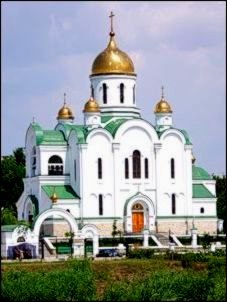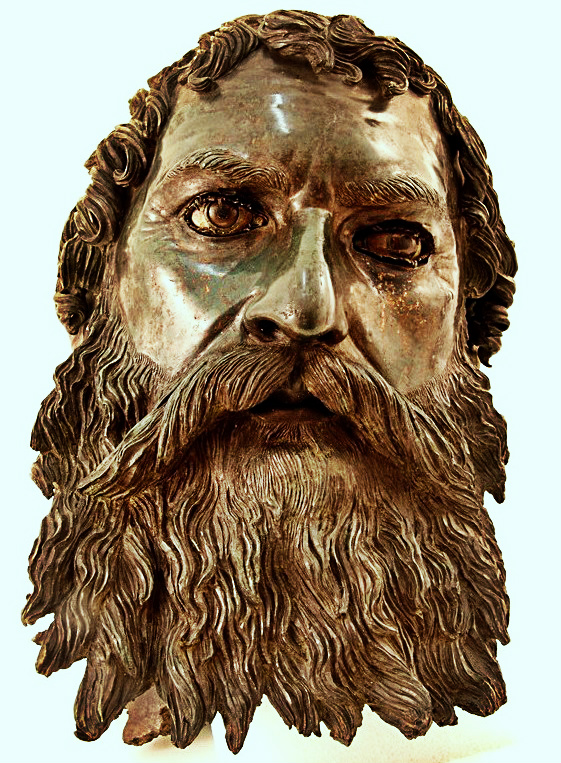|
Tiraspol
Tiraspol (, ; also /; , ; , ) is the capital and largest city of Transnistria, a breakaway state of Moldova, where it is the third-largest city. The city is located on the eastern bank of the Dniester River. Tiraspol is a regional hub of culture, economy, tourism, and light industry, such as furniture and electrical goods production. The modern city of Tiraspol was founded by the Russian generalissimo Alexander Suvorov in 1792, although the area had been inhabited for thousands of years by varying ethnic groups. The city celebrates its anniversary every year on 14 October. Etymology The toponym consists of two ancient Greek words: , ''Tyras'', the Classical antiquity, Ancient name for the Dniester River, and ''polis'', i.e., a city (state). History Classical and medieval history Tyras (), also spelled ''Tiras'', was a Greek colonisation, colony of the Greek city Miletus, probably founded about 600 BC, situated some from the mouth of the Tiras River (Dniester). Of n ... [...More Info...] [...Related Items...] OR: [Wikipedia] [Google] [Baidu] |
Transnistria
Transnistria, officially known as the Pridnestrovian Moldavian Republic and locally as Pridnestrovie, is a Landlocked country, landlocked Transnistria conflict#International recognition of Transnistria, breakaway state internationally recognized as part of Moldova. It controls most of the narrow strip of land between the Dniester river and the Moldova–Ukraine border, as well as some land on the other side of the river's bank. Its Capital city, capital and largest city is Tiraspol. Transnistria is officially designated by the Republic of Moldova as the Administrative-Territorial Units of the Left Bank of the Dniester () or as ("Left (Bank) of the Dniester"). The region's origins can be traced to the Moldavian Autonomous Soviet Socialist Republic, which was formed in 1924 within the Ukrainian Soviet Socialist Republic, Ukrainian SSR. During World War II, the Soviet Union took parts of the Moldavian Autonomous Soviet Socialist Republic, Moldavian ASSR, which was dissolved, an ... [...More Info...] [...Related Items...] OR: [Wikipedia] [Google] [Baidu] |
Church Of The Nativity, Tiraspol
The Church of the Nativity (, , Cathedral of the Nativity of the Lord in Tiraspol), also known as the Cathedral of the Birth of Christ (, Cathedral of the Nativity of Christ) , is the largest and newest church in Tiraspol, the capital of Transnistria. It is a Russian Orthodox Church completed in 1999 to serve as the Mother Church of the Orthodox Christian Diocese of Tiraspol. Celebrations marking the completion of the cathedral included, among other things, the issuing of a series of postage stamps featuring the church (see Transnistrian stamps issued for Christmas 1999). In 2001, the cathedral's image was displayed on the principal coins struck for a commemorative series of gold and silver currency featuring Orthodox Temples of Transnistria. Sources Sobor-Tiraspol.com: О соборе — Кафедральный собор Рождества Христова(accessed 16 February 2024) * J. Solak, ''Mołdawia: republika na trzy pęknięta. Historyczno-społeczny, militarny i ... [...More Info...] [...Related Items...] OR: [Wikipedia] [Google] [Baidu] |
Republic Of Moldova
Moldova, officially the Republic of Moldova, is a landlocked country in Eastern Europe, with an area of and population of 2.42 million. Moldova is bordered by Romania to the west and Ukraine to the north, east, and south. The unrecognised breakaway state of Transnistria lies across the Dniester river on the country's eastern border with Ukraine. Moldova is a unitary parliamentary representative democratic republic with its capital in Chișinău, the country's largest city and main cultural and commercial centre. Most of Moldovan territory was a part of the Principality of Moldavia from the 14th century until 1812, when it was ceded to the Russian Empire by the Ottoman Empire (to which Moldavia was a vassal state) and became known as Bessarabia. In 1856, southern Bessarabia was returned to Moldavia, which three years later united with Wallachia to form Romania. but Russian rule was restored over the whole of the region in 1878. During the 1917 Russian Revolution, Bessar ... [...More Info...] [...Related Items...] OR: [Wikipedia] [Google] [Baidu] |
Moldova
Moldova, officially the Republic of Moldova, is a Landlocked country, landlocked country in Eastern Europe, with an area of and population of 2.42 million. Moldova is bordered by Romania to the west and Ukraine to the north, east, and south. The List of states with limited recognition, unrecognised breakaway state of Transnistria lies across the Dniester river on the country's eastern border with Ukraine. Moldova is a Unitary state, unitary Parliamentary system, parliamentary Representative democracy, representative democratic republic with its capital in Chișinău, the country's largest city and main cultural and commercial centre. Most of Moldovan territory was a part of the Principality of Moldavia from the 14th century until 1812, when it was Treaty of Bucharest (1812), ceded to the Russian Empire by the Ottoman Empire (to which Moldavia was a Vassal and tributary states of the Ottoman Empire, vassal state) and became known as Bessarabia. In 1856, southern Bessarabia was ... [...More Info...] [...Related Items...] OR: [Wikipedia] [Google] [Baidu] |
Alexander Suvorov
Count Alexander Vasilyevich Suvorov-Rymniksky, Prince of Italy () was a Russian general and military theorist in the service of the Russian Empire. Born in Moscow, he studied military history as a young boy and joined the Imperial Russian Army at the age of 17. Promoted to colonel in 1762 for his successes during the Seven Years' War, his victories during the War of the Bar Confederation included the capture of Kraków and victories at Battle of Orzechowo, Orzechowo, Battles of Lanckorona#Third clash (Battle of Lanckorona), Lanckorona, and Battle of Stołowicze, Stołowicze. His reputation rose further when, in the Russo-Turkish War (1768–1774), Russo-Turkish War of 1768–1774, he Stormings of Turtucaia, captured Turtukaya twice and won a decisive victory at Battle of Kozludzha, Kozludzha. After a period of little progress, he was promoted to general and led Russian forces in the Russo-Turkish War (1787–92), Russo-Turkish War of 1787–1792, participating in the Siege o ... [...More Info...] [...Related Items...] OR: [Wikipedia] [Google] [Baidu] |
Oleg Dovgopol
Oleg Anatolievich Dovgopol (; born 14 October 1975) is a Transnistrian politician serving as the mayor of Tiraspol and Dnestrovsc since 23 December 2016. Biography Dovgopol was born on 14 October 1975 in Bershad, Ukrainian SSR, USSR and moved to Tiraspol Tiraspol (, ; also /; , ; , ) is the capital and largest city of Transnistria, a breakaway state of Moldova, where it is the third-largest city. The city is located on the eastern bank of the Dniester River. Tiraspol is a regional hub of cul ... with his family in 1979. He graduated from the Faculty of Law of the Shevchenko Transnistria State University. Since 1997 he served in the state security bodies of the Pridnestrovian Moldavian Republic. In 2005, he was elected a deputy of the Tiraspol City Council of People's Deputies. From 2006 to 2016 he worked as director of Centr-Market OOO. Since 23 December 2016 he has been serving as the mayor of Tiraspol and Dnestrovsc. References 1975 births Living people Pe ... [...More Info...] [...Related Items...] OR: [Wikipedia] [Google] [Baidu] |
Municipiu
A municipiu (from Latin ''municipium''; English: municipality) is a level of administrative subdivision in Romania and Moldova, roughly equivalent to city in some English-speaking world, English-speaking countries. In Romania, this status is given to towns that are large and urbanized; at present, there are 103 ''municipii''. There is no clear benchmark regarding the status of ''municipiu'' even though it applies to localities which have a sizeable population, usually above 15,000, and extensive urban infrastructure. Localities that do not meet these loose guidelines are classified only as towns (''orașe''), or if they are not urban areas, as Commune in Romania, communes (''comune''). Cities are governed by a mayor and local council. There are no official administrative subdivisions of cities even though, unofficially, municipalities may be divided into quarters/districts (''cartiere'' in Romanian language, Romanian). The exception to this is Bucharest, which has a status simila ... [...More Info...] [...Related Items...] OR: [Wikipedia] [Google] [Baidu] |
Dniester River
The Dniester ( ) is a transboundary river in Eastern Europe. It runs first through Ukraine and then through Moldova (from which it more or less separates the breakaway territory of Transnistria), finally discharging into the Black Sea on Ukrainian territory again. Names The name ''Dniester'' derives from Sarmatian ''dānu nazdya'' "the close river". (The Dnieper, also of Sarmatian origin, derives from the opposite meaning, "the river on the far side".) Alternatively, according to Vasily Abaev ''Dniester'' would be a blend of Scythian ''dānu'' "river" and Thracian ''Ister'', the previous name of the river, literally Dān-Ister (River Ister). The Ancient Greek name of Dniester, ''Tyras'' (Τύρας), is from Scythian ''tūra'', meaning "rapid". The names of the Don and Danube are also from the same Iranian word ''*dānu'' "river". Classical authors have also referred to it as ''Danaster.'' These early forms, without -''i''- but with -''a''-, contradict Abaev's hypothe ... [...More Info...] [...Related Items...] OR: [Wikipedia] [Google] [Baidu] |
Supreme Council (Transnistria)
The Supreme Council of the Pridnestrovian Moldavian Republic; ;Верховный Совет Приднестровской Молдавской Республики retrieved 15 April 2011 is the of the internationally-unrecognised state of . It consists of 33 seats, all of which are determined by [...More Info...] [...Related Items...] OR: [Wikipedia] [Google] [Baidu] |
Indigenous Peoples
There is no generally accepted definition of Indigenous peoples, although in the 21st century the focus has been on self-identification, cultural difference from other groups in a state, a special relationship with their traditional territory, and an experience of subjugation and discrimination under a dominant cultural model. Estimates of the population of Indigenous peoples range from 250 million to 600 million. There are some 5,000 distinct Indigenous peoples spread across every inhabited climate zone and inhabited continent of the world. Most Indigenous peoples are in a minority in the state or traditional territory they inhabit and have experienced domination by other groups, especially non-Indigenous peoples. Although many Indigenous peoples have experienced colonization by settlers from European nations, Indigenous identity is not determined by Western colonization. The rights of Indigenous peoples are outlined in national legislation, treaties and international law ... [...More Info...] [...Related Items...] OR: [Wikipedia] [Google] [Baidu] |
Thracians
The Thracians (; ; ) were an Indo-European languages, Indo-European speaking people who inhabited large parts of Southeast Europe in ancient history.. "The Thracians were an Indo-European people who occupied the area that today is shared between Thrace, north-eastern Greece, Romania, and north-western Turkey. They shared the same language and culture. There may have been as many as a million Thracians, divided among up to 40 tribes." Thracians resided mainly in Southeast Europe in Present (time), modern-day Bulgaria, Romania, North Macedonia, northern Greece and European Turkey, but also in north-western Anatolia, Anatolia (Asia Minor) in Turkey. The exact origin of the Thracians is uncertain, but it is believed that Thracians like other Indo-European speaking groups in Europe descended from a mixture of Proto-Indo-Europeans and Early European Farmers. Around the 5th millennium BC, the inhabitants of the eastern region of the Balkans became organized in different groups of Indi ... [...More Info...] [...Related Items...] OR: [Wikipedia] [Google] [Baidu] |



